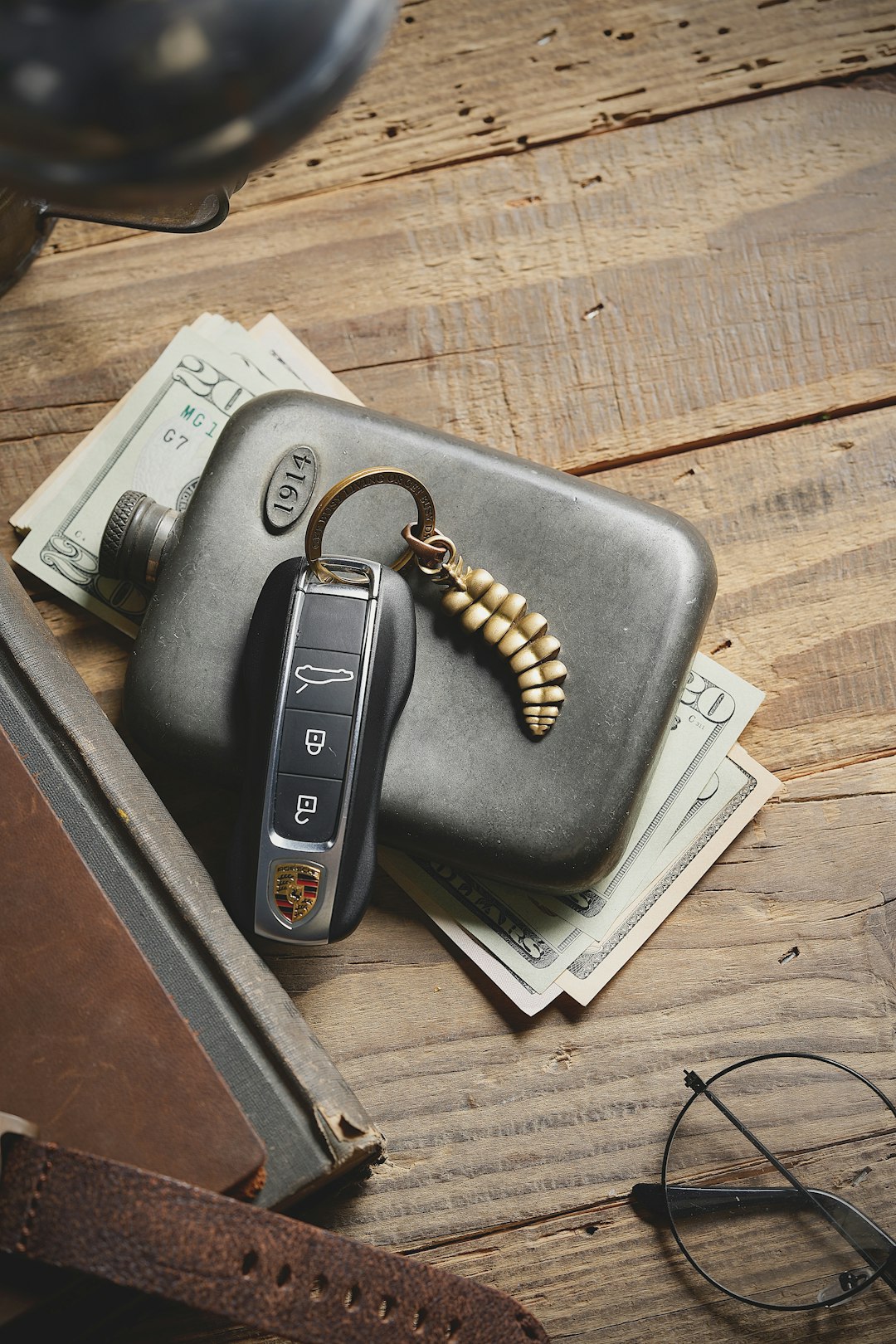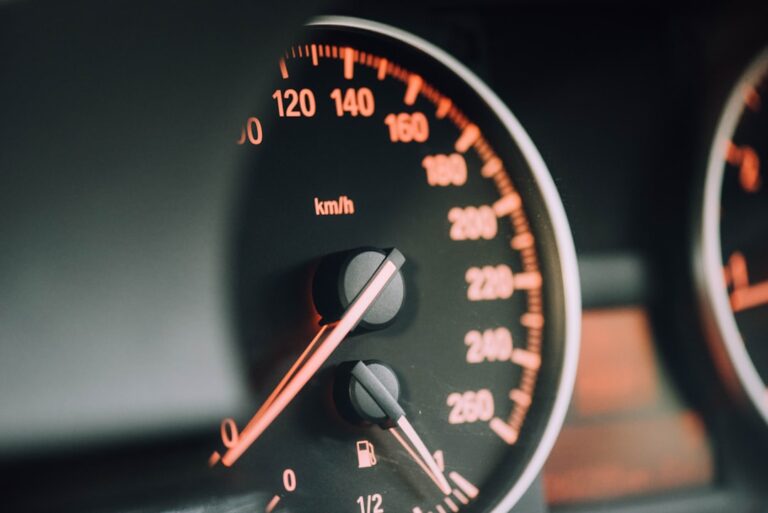Support our educational content for free when you purchase through links on our site. Learn more
What Credit Score Do You Need to Lease a Car with No Down Payment? 🚗 (2025)

Picture this: You walk into a dealership, eyes on that sleek new ride, and the salesperson asks, “How much are you putting down today?” Your heart sinks—because you hoped for no down payment. But what if we told you that with the right credit score, that dream lease deal is totally within reach? In fact, the average credit score for new car leases in 2024 is a solid 751, and knowing where you stand can unlock some of the best no-money-down offers on the market.
In this article, we’ll peel back the curtain on what credit score you really need to lease a car with zero down payment, how lenders size you up beyond just the numbers, and savvy strategies to boost your credit fast. Whether you’re cruising with excellent credit or navigating bumps with less-than-perfect scores, we’ve got the insider tips to get you behind the wheel without emptying your wallet upfront.
Key Takeaways
- A credit score of 700 or higher is generally needed to qualify for the best no down payment car leases.
- Even with great credit, expect to pay upfront fees like acquisition fees and the first month’s payment.
- Leasing with subprime credit (<650) is possible but often requires a down payment, co-signer, or lease transfers.
- Improving your credit score before leasing can save you thousands in monthly payments.
- Know your lease lingo and bring proper documentation to speed up approval.
- Check out popular brands with great lease deals like Toyota, Ford, and Hyundai.
Ready to discover how to turn your credit score into keys? Let’s dive in!
Table of Contents
- ⚡️ Quick Tips and Facts
- The Credit Score Compass: Navigating Your Financial Health for Auto Leases
- Unlocking the Deal: What Credit Score Do You REALLY Need for a Car Lease?
- Decoding Credit Tiers: Where Do You Stand for Premium Lease Deals?
- The Holy Grail of Leasing: Securing a Car Lease with No Down Payment
- The ‘No Down Payment’ Dream: Is It Truly Zero Upfront?
- Pros & Cons of the Zero Down Lease: Weighing Your Options Wisely
- Beyond the Score: Other Factors Lenders Obsess Over for Your Lease Application
- Navigating the Bumps: Can You Lease a Car with Less-Than-Perfect Credit?
- Boosting Your Bureau: A Step-by-Step Guide to Supercharging Your Credit Score for Leasing
- The Leasing Lingo Lowdown: Key Terms You MUST Master Before Signing
- Your Lease Application Checklist: What to Bring to the Dealership
- Negotiating Like a Pro: Tips for Landing the Best Lease Deal
- Leasing vs. Buying: Which Road is Right for Your Automotive Journey?
- Co-Signers and Lease Transfers: Creative Solutions for Your Lease Journey
- Common Pitfalls to Avoid When Leasing a Car
- Conclusion: Driving Off into the Sunset with Confidence
- Recommended Links
- FAQ: Your Burning Lease Questions Answered
- Reference Links
⚡️ Quick Tips and Facts
Leasing a car with no down payment sounds like a dream, right? But what credit score do you need to unlock that dream? Here’s a quick rundown from the Car Leases™ pit crew:
- ✅ Good credit score for no down payment lease: Typically 700+ FICO score opens the best doors.
- ❌ Bad credit? You can still lease, but expect higher monthly payments or a required down payment.
- 💡 Average credit score for new car leases: Around 750 in 2024 (Experian).
- 🔍 Money factor (lease interest rate): Lower credit scores mean higher money factors.
- 🛠️ Leasing perks: Lower monthly payments, warranty coverage, and short-term commitment.
- ⚠️ Watch out: Mileage limits, no ownership, and potential fees.
- 🏦 Improve credit: Pay bills on time, reduce debt, dispute errors, and avoid new credit inquiries before leasing.
- 🔄 Lease transfers: A creative way to lease with lower credit requirements.
Want to dive deeper? We’ve got you covered with everything from credit score breakdowns to savvy negotiation tips. Plus, check out our related article on 7 Smart Down Payment Tips for Cars with Bad Credit (2025) for insider hacks!
The Credit Score Compass: Navigating Your Financial Health for Auto Leases
Before you hit the dealership, understanding your credit score is like having a GPS for your car lease journey. Your credit score is a three-digit number that tells lenders how risky it is to lend you money or lease you a car. The most common scoring model, FICO, ranges from 300 to 850.
Why does it matter? Because leasing companies want to know if you’re likely to pay on time. The better your score, the sweeter the deal:
- Excellent (800-850): Prime lease offers, lowest money factors, and often $0 down.
- Good (700-799): Very good lease options, still likely to get $0 down.
- Fair (650-699): Lease possible but may require down payment or higher monthly fees.
- Poor (<650): Leasing is tough; expect higher costs or need a cosigner.
Fun fact: The average FICO score for new car leases was 751 in Q1 2024, which is higher than the national average of 715. This means leasing companies prefer borrowers with above-average credit.
Pro tip: Check your credit score and report for free at AnnualCreditReport.com or use tools like Capital One’s CreditWise to monitor your score without hurting it.
Unlocking the Deal: What Credit Score Do You REALLY Need for a Car Lease?
So, what’s the magic number? While there’s no one-size-fits-all, here’s the scoop from industry insiders and data:
| Credit Score Range | Lease Approval Chances | Typical Lease Terms | Down Payment Expectation |
|---|---|---|---|
| 750+ (Excellent) | ✅ Very High | Best rates, $0 down | Usually none |
| 700-749 (Good) | ✅ High | Competitive rates | Possibly $0 or low |
| 650-699 (Fair) | ⚠️ Moderate | Higher rates | Likely required |
| <650 (Poor) | ❌ Low | Limited options | Usually required |
Why does this matter? Because leasing companies use your credit score to calculate the money factor — the lease’s version of an interest rate. For example, a money factor of 0.0025 equals roughly a 6% interest rate.
Example: If you have a 720 credit score, you might get a money factor around 0.0015 (3.6%), but a 640 score could push that to 0.0040 (9.6%), increasing your monthly payment significantly.
Heads up: Some manufacturers like Toyota Financial Services or Ford Credit have their own credit score thresholds and may offer special lease deals for scores above 700.
Decoding Credit Tiers: Where Do You Stand for Premium Lease Deals?
Let’s break down the credit tiers and what they mean for your lease options:
1. Prime Credit (750+)
- Perks: Lowest money factors, $0 down payment, flexible lease terms.
- Brands: BMW, Mercedes-Benz, Tesla often reserve their best deals for this group.
- Example: Leasing a Tesla Model 3 with $0 down and a low monthly payment.
2. Near-Prime (700-749)
- Perks: Good lease offers, sometimes $0 down with slightly higher monthly payments.
- Brands: Toyota, Honda, Ford offer attractive deals here.
- Example: Toyota Camry lease with no down payment but slightly higher money factor.
3. Subprime (650-699)
- Perks: Lease approval possible but expect a down payment and higher monthly fees.
- Brands: Limited options; may need to consider used car leases or lease transfers.
- Example: Ford Escape lease requiring a down payment.
4. Deep Subprime (<650)
- Perks: Leasing is challenging; higher security deposits or co-signers needed.
- Brands: Few direct leases; consider lease transfers or buy here pay here lots.
- Example: May need to look at used car financing instead.
The Holy Grail of Leasing: Securing a Car Lease with No Down Payment
Leasing a car with no down payment is like finding a unicorn — rare but not impossible! Here’s what you need to know:
- Credit score: Usually 700+ to qualify for $0 down.
- Stable income: Lenders want proof you can cover monthly payments.
- Good debt-to-income ratio: Less debt means better chances.
- Vehicle selection: Popular models with strong resale value often have better $0 down deals.
- Manufacturer incentives: Keep an eye on seasonal promotions from brands like Hyundai or Chevrolet.
Why do dealers want a down payment? It reduces their risk and lowers your monthly payments. But if you’re confident in your credit and income, you can negotiate for $0 down — just expect slightly higher monthly payments.
The ‘No Down Payment’ Dream: Is It Truly Zero Upfront?
Beware the fine print! “No down payment” often means no upfront cash at signing, but you might still owe:
- First month’s payment upfront
- Acquisition fees (typically $500-$1,000)
- Taxes and registration fees
- Security deposits (sometimes refundable)
So, while you might skip a big down payment, expect some initial costs. Always ask the dealer for a detailed lease worksheet showing all fees.
Pros & Cons of the Zero Down Lease: Weighing Your Options Wisely
| Pros | Cons |
|---|---|
| ✅ Lower upfront cash needed | ❌ Higher monthly payments |
| ✅ Easier to get into a new car | ❌ May pay more interest over lease |
| ✅ Keeps savings intact | ❌ Potentially higher risk to lender |
| ✅ Flexibility for short-term plans | ❌ May require excellent credit score |
Our take: If you’re tight on cash but have good credit, zero down leases can be a smart move. But if your credit is shaky, putting some money down might save you thousands in the long run.
Beyond the Score: Other Factors Lenders Obsess Over for Your Lease Application
Credit score isn’t the whole story. Leasing companies also look at:
- Income and employment history: Stable job = better approval odds.
- Debt-to-income ratio: Lower is better; lenders want to see you can handle payments.
- Credit history length: Longer history with on-time payments helps.
- Recent credit inquiries: Too many can hurt your chances.
- Vehicle choice: Leasing a luxury car vs. an economy model affects approval.
Tip: Bring proof of income, recent pay stubs, and a list of monthly debts to the dealership to speed up approval.
Navigating the Bumps: Can You Lease a Car with Less-Than-Perfect Credit?
Absolutely! Leasing with a credit score below 700 isn’t impossible, but it’s a bit like driving on a bumpy road — you need to be prepared.
- Expect higher money factors (interest rates).
- You may need a down payment or security deposit.
- Lease options might be limited to certain brands or models.
- Some dealers offer “second chance” leases or in-house financing.
7 Savvy Strategies for Leasing a Car with Challenging Credit
- Improve your credit before applying (see next section).
- Consider a co-signer with good credit.
- Trade in a vehicle with positive equity to reduce upfront costs.
- Look for lease transfers on platforms like Swapalease or LeaseTrader.
- Choose less expensive models with strong resale values.
- Negotiate fees and money factor aggressively.
- 👉 Shop multiple dealerships and lenders to compare offers.
Boosting Your Bureau: A Step-by-Step Guide to Supercharging Your Credit Score for Leasing
Improving your credit score before leasing can save you serious cash. Here’s how to turbocharge your credit:
Step 1: Check Your Credit Report (and Dispute Errors!)
- Get free reports from AnnualCreditReport.com.
- Look for mistakes like wrong accounts or late payments.
- Dispute errors with credit bureaus promptly.
Step 2: Pay Your Bills on Time, Every Time ⏰
- Payment history is 35% of your FICO score.
- Set up automatic payments or reminders.
- Even one late payment can ding your score.
Step 3: Keep Credit Utilization Low
- Aim for under 30% of your credit limits.
- Pay down credit card balances aggressively.
- Avoid maxing out cards before leasing.
Step 4: Don’t Close Old Accounts
- Length of credit history counts.
- Keep old accounts open unless there’s a compelling reason.
Step 5: Limit New Credit Applications
- Multiple hard inquiries can lower your score.
- Apply for new credit sparingly before leasing.
Step 6: Diversify Your Credit Mix (Responsibly!)
- Having a mix of credit types (credit cards, installment loans) can boost your score.
- Don’t open accounts you don’t need just for diversity.
The Leasing Lingo Lowdown: Key Terms You MUST Master Before Signing
Before you sign that lease, here’s your glossary of must-know terms:
| Term | What It Means |
|---|---|
| Money Factor | Lease interest rate expressed as a decimal |
| Residual Value | Estimated car value at lease end |
| Capitalized Cost | Negotiated price of the car for the lease |
| Acquisition Fee | Fee charged by leasing company to start the lease |
| Mileage Limit | Max miles allowed per year without penalty |
| Disposition Fee | Fee when you return the car at lease end |
| Security Deposit | Refundable deposit to reduce risk to the lessor |
Knowing these terms helps you negotiate better and avoid surprises.
Your Lease Application Checklist: What to Bring to the Dealership
Be prepared to speed up approval with:
- Valid driver’s license
- Proof of income (pay stubs, tax returns)
- Proof of residence (utility bills)
- Social Security number
- Proof of insurance (some dealers require it upfront)
- Trade-in documents (if applicable)
- List of current debts and monthly payments
Negotiating Like a Pro: Tips for Landing the Best Lease Deal
- Negotiate the capitalized cost like you would a purchase price.
- Ask for money factor discounts or incentives.
- Don’t be shy about asking for $0 down — dealers want your business.
- Check for manufacturer lease specials on official sites like Toyota Financial Services.
- Consider multiple dealerships to compare offers.
- Always read the fine print on fees and mileage limits.
Leasing vs. Buying: Which Road is Right for Your Automotive Journey?
| Aspect | Leasing | Buying |
|---|---|---|
| Monthly Payments | Lower, but ongoing | Higher, but eventually paid off |
| Ownership | No, you return the car | Yes, you own the car |
| Maintenance | Usually covered by warranty | You pay after warranty expires |
| Mileage Limits | Yes, penalties for excess miles | No limits |
| Customization | Limited | Full customization allowed |
| Long-Term Cost | Can be higher if leasing repeatedly | Usually cheaper over time |
If you love driving a new car every few years and want lower monthly payments, leasing is your highway. If you want to build equity and drive without limits, buying is your destination.
Co-Signers and Lease Transfers: Creative Solutions for Your Lease Journey
- Co-signers: A trusted friend or family member with good credit can boost your lease approval chances.
- Lease transfers: Platforms like Swapalease and LeaseTrader let you take over someone else’s lease, often with little or no down payment.
These options can be lifesavers if your credit score isn’t quite there yet.
Common Pitfalls to Avoid When Leasing a Car
- Ignoring mileage limits — costly penalties can add up.
- Overlooking fees like acquisition or disposition fees.
- Not reading the lease agreement thoroughly.
- Failing to maintain insurance as required.
- Skipping credit score checks before applying.
Conclusion: Driving Off into the Sunset with Confidence
Leasing a car with no down payment is absolutely achievable — but your credit score is the key that unlocks the best deals. If your credit is solid (think 700+), you’re in the driver’s seat for $0 down leases with attractive money factors and flexible terms. For those with less-than-perfect credit, don’t despair! With smart strategies like co-signers, lease transfers, or improving your credit score, you can still cruise into a lease that fits your budget.
Remember, “no down payment” rarely means zero upfront costs — expect some fees and the first month’s payment. Weigh the pros and cons carefully: zero down means less cash out of pocket but often higher monthly payments.
At Car Leases™, we recommend aiming to boost your credit score before leasing to maximize your options and save money. And if you’re feeling stuck, explore lease transfers or co-signers — creative solutions that can get you behind the wheel sooner.
Ready to start your lease journey? Keep these insights handy, negotiate like a pro, and enjoy the ride!
Recommended Links
👉 Shop Popular Brands with Great Lease Deals:
- Toyota: Toyota Official Website | Toyota Lease Deals on Edmunds
- Ford: Ford Official Website | Ford Lease Offers on TrueCar
- Hyundai: Hyundai Official Website | Hyundai Lease Specials on AutoTrader
- Chevrolet: Chevrolet Official Website | Chevy Lease Deals on Edmunds
- Tesla: Tesla Official Website | Tesla Lease Options on Tesla
FAQ: Your Burning Lease Questions Answered
What credit score is required to lease a car with no money down and no security deposit?
To qualify for a no money down and no security deposit lease, lenders typically look for a credit score of 700 or higher. This “good” to “excellent” credit range signals low risk, allowing you to negotiate $0 down payment and waive security deposits. Some manufacturers like Toyota Financial Services or Ford Credit may have specific score thresholds around this range.
If your score dips below 700, you might still lease but expect to pay a down payment or security deposit to offset the lender’s risk. Keep in mind, even with excellent credit, some upfront fees like acquisition fees and first month’s payment are usually still required.
How can I lease a car with bad credit and no down payment, and what are the typical interest rates?
Leasing with bad credit (below 650) and no down payment is challenging but not impossible. Here’s how:
- Lease transfers: Taking over someone else’s lease can require little to no money down.
- Co-signers: A co-signer with good credit can help you qualify for better terms.
- In-house financing programs: Some dealerships offer “buy here, pay here” or special leasing for subprime credit.
- Negotiate: Sometimes dealers will accept no down payment but increase monthly payments.
Typical money factors (lease interest rates) for bad credit can be two to three times higher than prime rates. For example, where a prime lessee might get a money factor of 0.0015 (3.6% APR), a bad credit lessee might face 0.0040 or higher (9.6%+ APR). This means higher monthly payments.
Improving your credit score before leasing is the best way to secure affordable rates.
What are the requirements for leasing a car with no down payment, including income, employment, and credit history?
Besides a good credit score (700+), leasing companies want to see:
- Stable income: Proof of consistent employment or income, usually for at least 6 months to 1 year.
- Debt-to-income ratio: Ideally below 40%, showing you have enough income to cover monthly obligations.
- Clean credit history: Few recent late payments or derogatory marks.
- Residency and identification: Valid driver’s license and proof of residence.
Bring pay stubs, tax returns, and utility bills to the dealership to speed up approval. Lenders want confidence you can make monthly payments without defaulting.
Can I lease a car with a low credit score and no down payment, and are there any specific lenders or dealerships that offer this option?
Leasing with a low credit score and no down payment is rare but possible through:
- Lease transfer platforms like Swapalease and LeaseTrader, where you take over existing leases.
- Subprime lenders or dealership in-house financing programs that specialize in higher-risk customers.
- Co-signers who can back your lease application.
Brands like Hyundai and Kia sometimes offer special programs for subprime credit, but expect higher monthly payments. Always shop around and ask dealerships about their financing options for low credit.
Reference Links
- Experian: What Credit Score Do I Need for a Car Lease?
- NerdWallet: What Credit Score Do You Need to Lease a Car?
- Capital One: Can You Lease a Car With Bad Credit?
- AnnualCreditReport.com: Free Credit Reports
- Toyota Financial Services: Lease Offers
- Ford Credit: Lease Offers
- Swapalease: Lease Transfer Marketplace
- LeaseTrader: Lease Transfer Marketplace
Ready to take the wheel? With your newfound credit wisdom and leasing know-how, you’re set to score a deal that fits your budget and lifestyle. Happy leasing! 🚗💨



